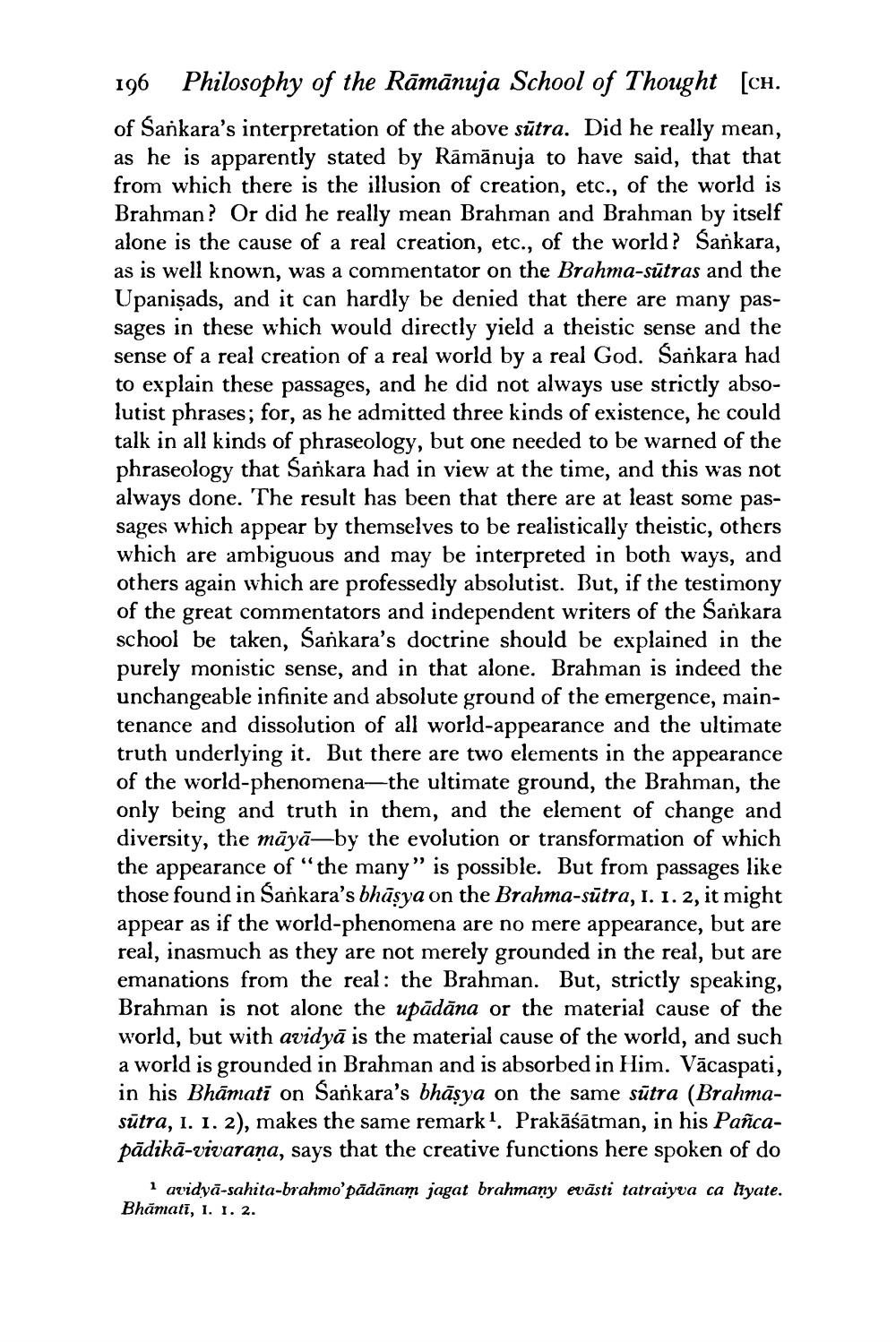________________
196 Philosophy of the Rāmānuja School of Thought [ch. of Sankara's interpretation of the above sütra. Did he really mean, as he is apparently stated by Rāmānuja to have said, that that from which there is the illusion of creation, etc., of the world is Brahman? Or did he really mean Brahman and Brahman by itself alone is the cause of a real creation, etc., of the world? Sankara, as is well known, was a commentator on the Brahma-sūtras and the Upanişads, and it can hardly be denied that there are many passages in these which would directly yield a theistic sense and the sense of a real creation of a real world by a real God. Sankara had to explain these passages, and he did not always use strictly absolutist phrases; for, as he admitted three kinds of existence, he could talk in all kinds of phraseology, but one needed to be warned of the phraseology that Sankara had in view at the time, and this was not always done. The result has been that there are at least some passages which appear by themselves to be realistically theistic, others which are ambiguous and may be interpreted in both ways, and others again which are professedly absolutist. But, if the testimony of the great commentators and independent writers of the Sankara school be taken, Sankara's doctrine should be explained in the purely monistic sense, and in that alone. Brahman is indeed the unchangeable infinite and absolute ground of the emergence, maintenance and dissolution of all world-appearance and the ultimate truth underlying it. But there are two elements in the appearance of the world-phenomena—the ultimate ground, the Brahman, the only being and truth in them, and the element of change and diversity, the māyā—by the evolution or transformation of which the appearance of the many" is possible. But from passages like those found in Sankara’s bhāșya on the Brahma-sūtra, I. 1. 2, it might appear as if the world-phenomena are no mere appearance, but are real, inasmuch as they are not merely grounded in the real, but are emanations from the real: the Brahman. But, strictly speaking, Brahman is not alone the upādāna or the material cause of the world, but with avidyā is the material cause of the world, and such a world is grounded in Brahman and is absorbed in Him. Vācaspati, in his Bhāmati on Sarkara's bhāsya on the same sūtra (Brahmasūtra, I. 1. 2), makes the same remark?. Prakāśātman, in his Pañcapādikā-vivarana, says that the creative functions here spoken of do
1 avidyā-sahita-brahmo'pādānam jagat brahmany evästi tatraiyva ca tiyate. Bhāmati, l. I. 2.




